Reparations for slavery: Is Asheville a national model?
ABC News Live takes a closer look at Asheville's historic reparations plan.
ASHEVILLE, N.C. -- More than 150 years after emancipation, the city council in Asheville, North Carolina, voted this month to remove a Confederate monument erected on the site of local slave auctions and pay financial restitution to African American residents.
The deeply symbolic steps have the city on edge and the nation wondering what's next.
As racial justice protests roil cities coast to coast, Asheville has become a focal point in the long-running debate over who deserves compensation for decades of slave labor; how much should be paid and by whom; and who should decide.
"The lesson I would hope other local governments take is, 'you can do this.' It's not just about writing a check," said Councilwoman Julie Mayfield in an interview with ABC News Live.
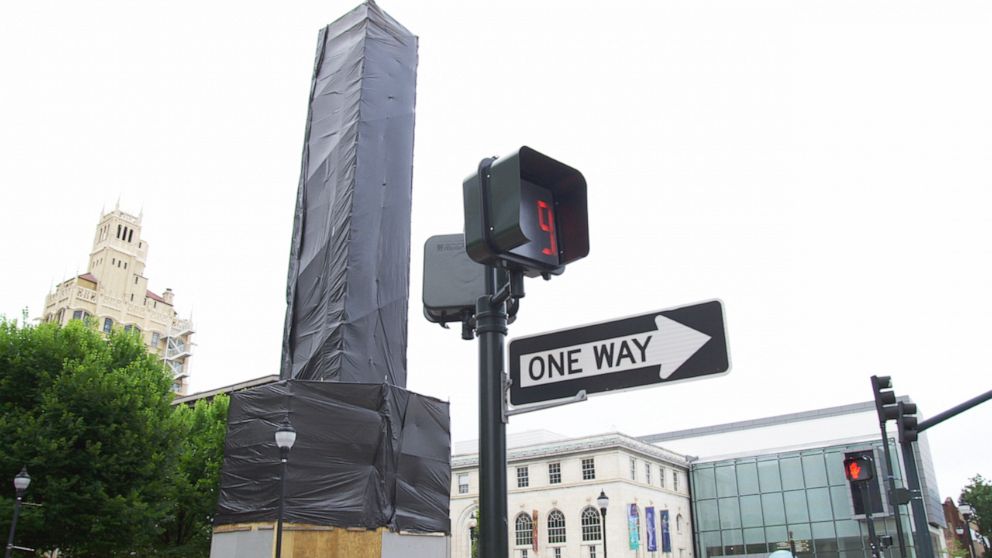
Asheville's city council voted unanimously to formally apologize for slavery and promise new investments in black homeownership and business opportunity.
It's the first municipal government in the south and only the second in the country to enact financial reparations.
"It's a huge step given where we're at," said Rob Thomas, a 33-year-old Asheville native who leads the city's Racial Justice Coalition. "We're in the South. We're in the Bible Belt. Our state is a conservative Republican state and they typically go against what it is we're asking for."
Asheville's plan doesn't make any direct payments to local black families and leaves it to a newly established commission to decide the amount of city funds and where they will be spent. Mayfield says it will all be done without raising taxes.
Just before the Civil War, 283 white residents around Asheville owned more than 1,900 slaves, according to public records. Today the city of 90,000 is 12% Black and a quarter of those families live in poverty.
"What we have committed to do in this resolution is invest in and create systems and programs and structures that will allow those community members to have the same opportunities for economic mobility, to build generational wealth that white people have," Mayfield said.
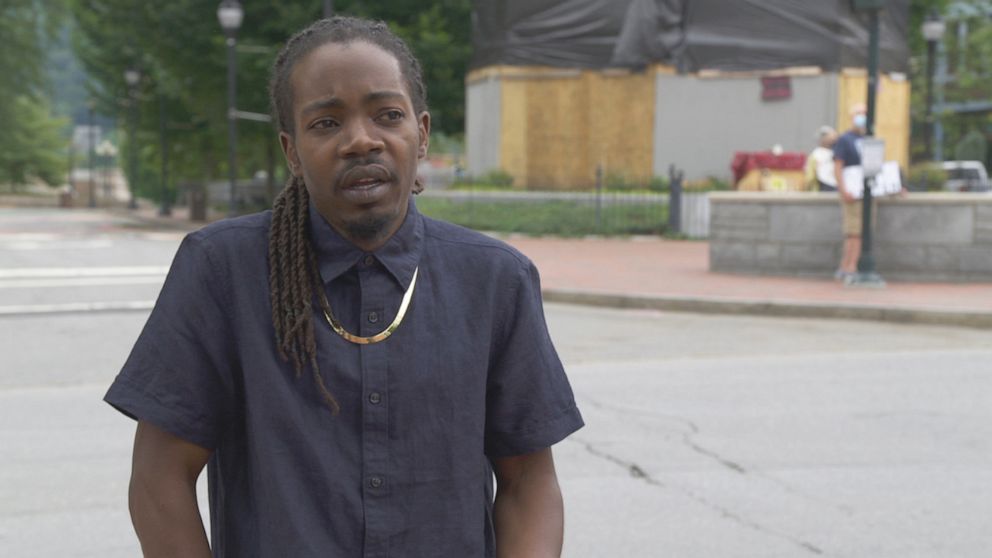
The median income for an Asheville family is just over $42,000 dollars; for black families, it's $30,000, according to U.S. Census data. The wealth gap is even more staggering: nationwide, the net worth of a typical white family today is 10 times greater than that of a typical Black family, Federal Reserve data shows.
Economists say it's unclear how much Asheville's reparations resolution can do to close the gap.
"These local efforts of atonement, however well-intentioned and however desirable, are not reparations by any means," said Duke economist and leading reparations expert William Darity, who says it would take $13 trillion to get Black Americans financially on par with their white peers.
That's more than four times the budgets of all American city governments combined, he said.
"The federal government is the culpable party because of its historical complicity in the process of maintaining slavery," Darity told ABC News Live. "Most of these local initiatives are a variety of forms of pulling the knife out, which is essential. But it's very, very different from healing the wound."
As Washington remains divided on reparations, some cities are looking to Asheville as a model on how to move forward.
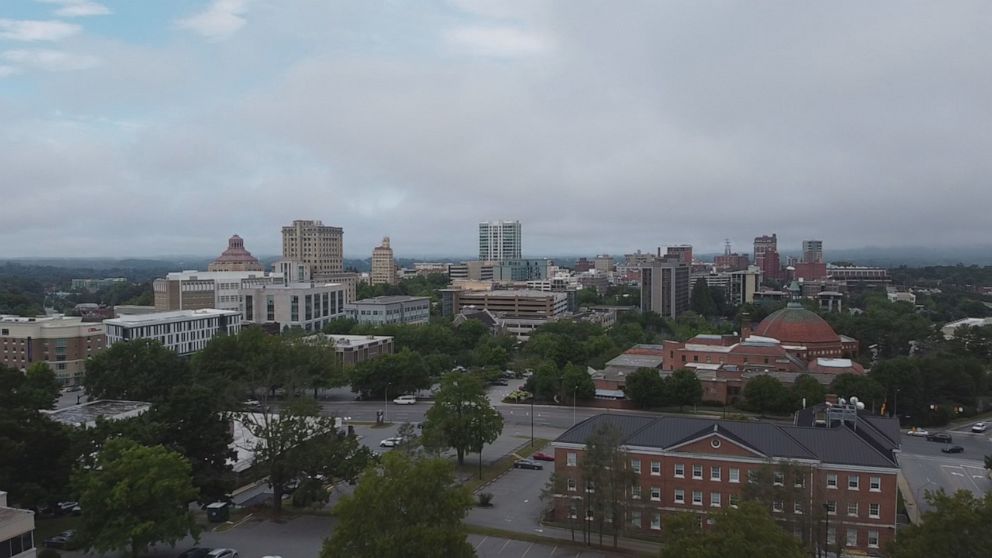
Providence, Rhode Island, and Richmond, Virginia, the former Confederate capital, have taken steps this month to follow Asheville's lead. Other cities are also joining the conversation. Last year, Evanston, Illinois, became the first U.S. city to approve financial reparations for Black residents.
"I feel that it has the potential to do amazing things. But at the end of the day, it's going to boil down to how much support and accountability comes from the community," Thomas said.
Blowback to the reparations resolution has been intense, said city officials, some of whom have been inundated with calls and emails threatening to boycott the city. Most Americans -- 63% in a recent ABC News/Washington Post poll -- oppose government payments to descendants of slaves.
"When you talk about making restitution, how do you make restitution for folks that are not here? People that were hurt are gone," said Jerry Green, chairman of the Buncombe County Republican Party. "In my opinion, we ought to look toward the future and work from here and quit dwelling on the past."
"None of us were there," added fellow Republican resident Fremont Brown. "We weren't involved in it. So why should we pay?"
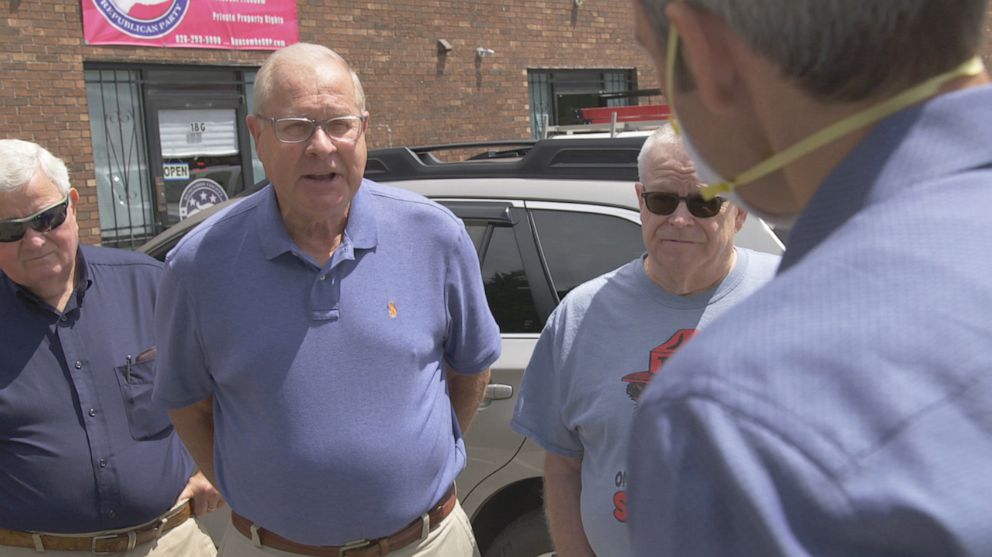
The federal government did reimburse Native Americans for their land in 18th and 19th century treaties and paid Japanese Americans for the indignity of internment camps during World War II. Some say direct payments to African Americans is the most fair and effective way to make up for more than a century of slave labor which helped build the American economy.
"Wholeness tends to be made via a monetary payment," said Ile Adaramola, an African American attorney in Asheville. "When the city says they're going to start right now, it's only words on paper because it's not done."
"I heard red tape; bureaucracy," Adaramola added. "And when we are looking at the history of reparations, it tends to be riddled with a lot of problems."
Thomas, the racial justice activist, concedes Asheville's reparations resolution is not "reparations in its truest form," but argues that a grassroots movement at the local level is necessary to spur action in Washington.
Democrats have introduced legislation in Congress to establish a federal commission to study reparations, but so far those measures have failed to gain widespread support. Leaders in the House of Representatives say they plan to pass a bill this year. Republicans and President Donald Trump are adamantly opposed.
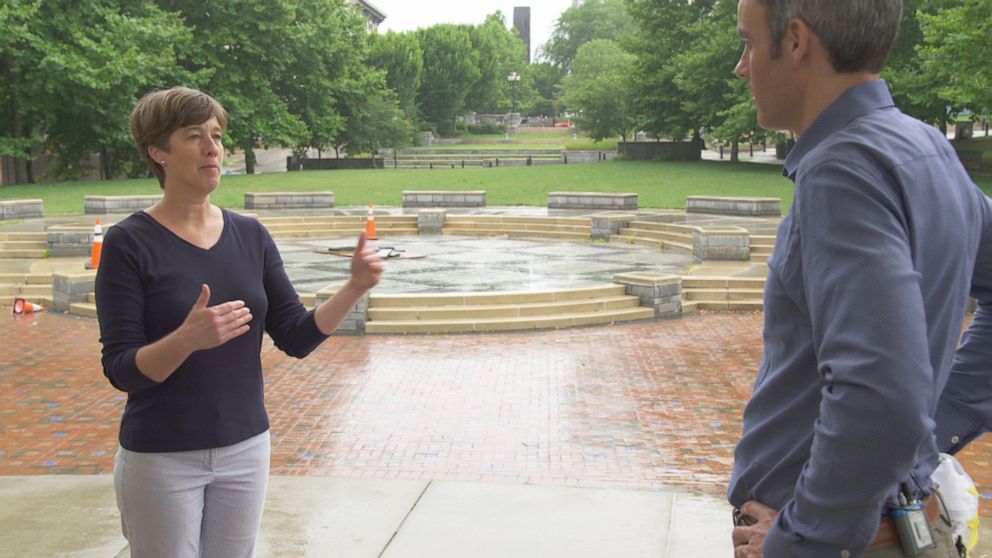
Long a bohemian mecca for liberals in an otherwise conservative state, the city did not shock many with its embrace of reparations, but advocates cautioned against interpreting it as a sign the city's racial divide has been healed.
The death of George Floyd while in police custody in Minneapolis sparked violent protests in Asheville and exposed racism that some residents said continues to lurk.
"As woke as I thought I was," said Asheville mother Katlin Smith, "I also realized that I have a lot of work to do myself, and I appreciate the community effort behind (reparations)."
"There is not racial equity in Asheville by any stretch of the imagination," she added. "We are the poster child for segregation."
Mayfield said she hopes the city can affect change and be a blueprint for other cities to follow.
"Don't let yourself get boxed in by people who want to box you in," she said of her advice to other municipal leaders considering reparations. "Look at the broader system and look at what you can do to enhance investments."
Until those investments come, Thomas said he plans to keep up the fight in Asheville. The community that made him is now depending on him, he added.
"What made me is all the seeds that my elders planted in my head as a youth that I didn't listen to at the time," Thomas said. "Once I was able to cultivate my mind and actually feed those seeds with the proper nourishment, now I have these beautiful trees and bushes that are producing the fruit that you see today."
Local resident and organizer David Greenson, who is white, said "The murder of George Floyd seemed to open a window in a lot of people's minds and hearts."
"I think people didn't want to be bystanders," he added.
ABC News' Jackie Yoo contributed to this report.




